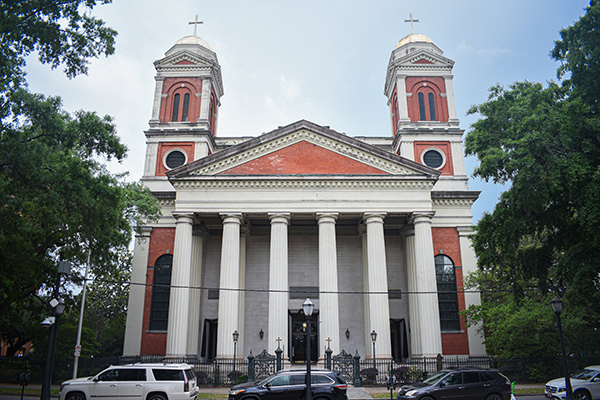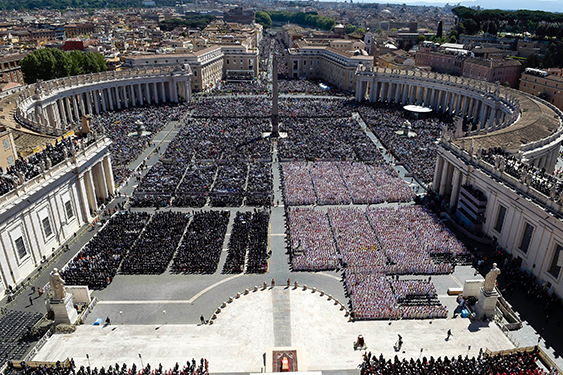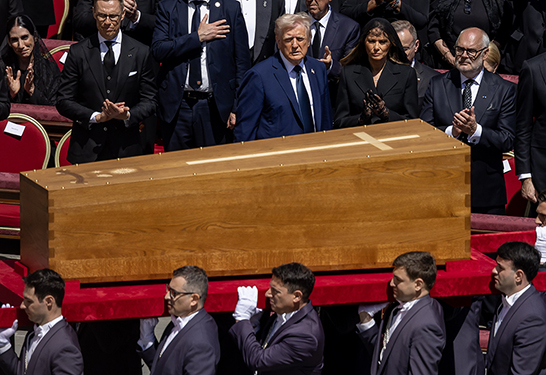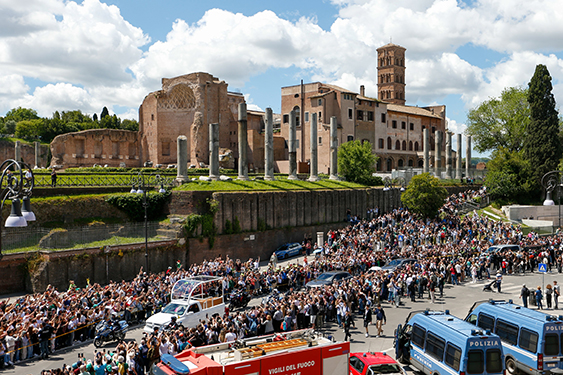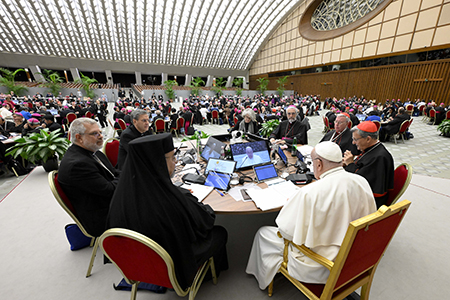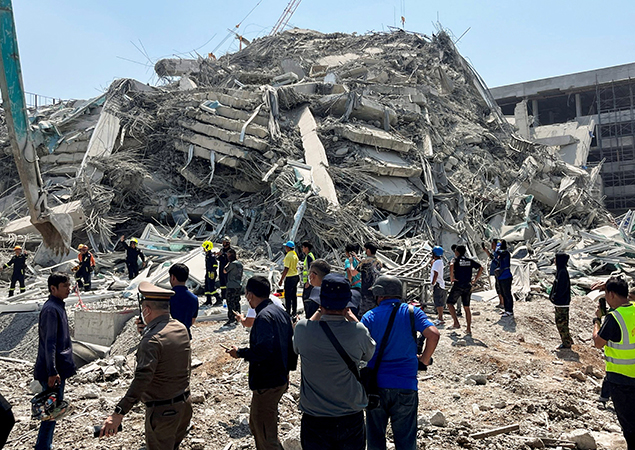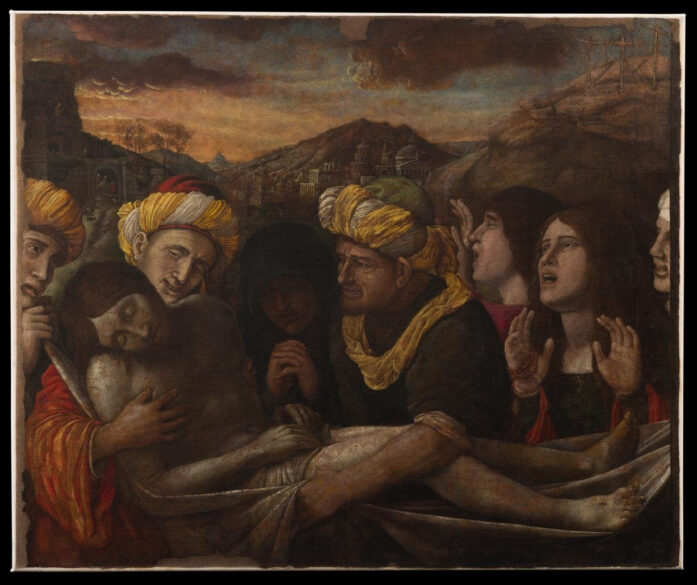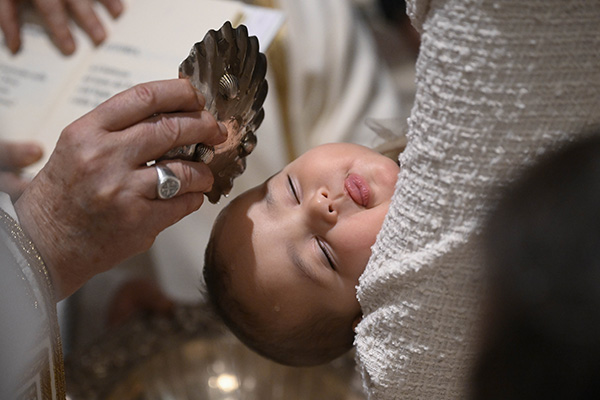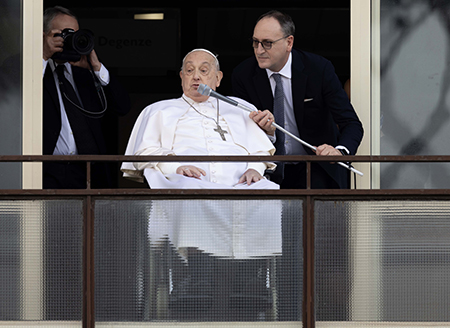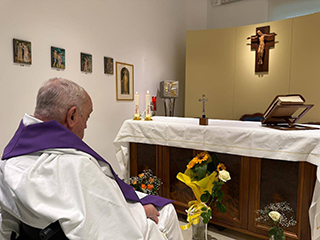By Maria Wiering
(OSV News) – As the Catholic Church welcomes its first American pope, here are 10 things to know about Pope Leo XIV, formerly Cardinal Robert F. Prevost.
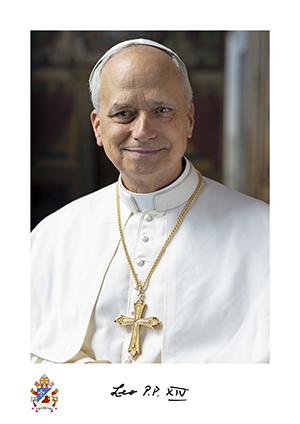
- Chicagoan. Pope Leo was born Sept. 14, 1955, and grew up in the south suburbs of Chicago. His father, Louis Marius Prevost, was an educator, and his mother, Mildred Martínez, was a librarian. He has two older brothers, was active in his childhood parish and his brother John says he is a White Sox fan. His family is reportedly of French, Italian and Spanish origin, with Creole heritage on his mother’s side. He loves the sport of tennis and plays regularly.
- Cosmopolitan. While American, Pope Leo has a global perspective, having lived most of his adult life in Peru and Rome. Based on his assignments, it appears that he has spent less than five years combined living in the United States since his priesthood ordination in 1982.
- Augustinian. He is a member of the Order of St. Augustine, a religious order that dates to 1244 and was founded to live the spirituality of early Christians. The order considers St. Augustine, a fifth-century theologian, philosopher and bishop of Hippo, its father. Before ordination, Pope Leo attended St. Augustine Seminary High School in Holland, Michigan, and Villanova University near Philadelphia, both Augustinian institutions. Augustinians are mendicant, meaning that they traditionally survive on begging or their own work, do not hold property and do not spend their life in a single location. Pope Leo is the first Augustinian to assume the chair of Peter, and the second member of a religious order to do so in nearly two centuries – the first being the first Jesuit pope, Pope Francis.
- Canonist. Pope Leo is a canon lawyer, having received his licentiate and doctorate in canon law from the Pontifical University of St. Thomas Aquinas, also known as the Angelicum, in Rome. He wrote doctoral thesis on “The role of the local prior in the Order of Saint Augustine.” For nearly a decade he served the Archdiocese of Trujillo, Peru, as its judicial vicar, which oversees the diocesan tribunal. During that time he was also a professor of canon, patristic and moral law in the San Carlos e San Marcelo Major Seminary.
- Leader. Pope Leo has an impressive range of leadership experience. After several pastoral and seminary formation roles in Chicago and Peru, he was elected in 1999 to oversee his order’s province in Chicago, and then two years later, he took the helm of the order worldwide. He was reelected for a second six-year term, ultimately holding the Rome-based position for 12 years. Then, in 2014, Pope Francis appointed him to oversee the Diocese of Chiclayo, Peru, a role he held for nine years and that included a year-long stint as the apostolic administrator of the Diocese of Callao, Peru, whose see city is nearly 500 miles south of Chiclayo. In 2023, Pope Francis appointed him as prefect of the Holy See’s Dicastery for Bishops, which oversees the appointments of bishops worldwide.
- Baby boomer. At age 69, Pope Leo is seven years younger than Pope Francis was when he was elected in 2013, and nine years younger than Pope Benedict XVI when he was elected in 2005. He is 11 years older than St. John Paul II, who was 58 at his 1978 election.
- Socially minded. His name is an apparent nod to Pope Leo XIII, who led the church from 1878 until 1903 and is especially known for his 1891 encyclical “Rerum Novarum,” or “On the Condition of the Working Classes.” That document responded to the state of the industrial society at the end of the 19th century and cemented Pope Leo XIII’s position as the modern father of Catholic social doctrine. Pope Leo XIII also composed the popular St. Michael prayer, penned an 1879 encyclical calling for the rooting of Christian philosophy in the writings of St. Thomas Aquinas, and issued an 1899 apostolic letter condemning “Americanism,” a worldview he feared was held by American prelates that bolstered American values such as pluralism and individualism to the detriment of Catholic teaching.
- Peace bearer. Pope Leo’s first words to the world were “Peace be with you” on a balcony of St. Peter’s Basilica overlooking masses of people in the square. “Beloved brothers and sisters, this is the first greeting of the Risen Christ, the Good Shepherd who has given his life for the flock of God,” he continued. “I, too, would like this greeting of peace to enter your hearts, reach your families, to all people, wherever they may be, to all peoples, to all the earth. … It comes from God, God who loves us all unconditionally.”
- Polyglot. Pope Leo speaks English, Spanish, Italian, French and Portuguese, and he reads Latin and German. He gave his first greeting May 8 in Italian but switched to Spanish to greet the faithful of his former Diocese of Chiclayo before giving the “urbi et orbi” blessing in Latin. On May 9, he began his first public homily with English but preached most of it in Italian.
- Successor of Peter. On his first full day as pope May 9, Pope Leo preached before the College of Cardinals who elected him, speaking of an exchange between Jesus and St. Peter, the first pope. He called the church “an ark of salvation sailing through the waters of history and a beacon that illumines the dark nights of this world. And this, not so much through the magnificence of her structures or the grandeur of her buildings – like the monuments among which we find ourselves – but rather through the holiness of her members.”
(Maria Wiering is senior writer for OSV News.)

